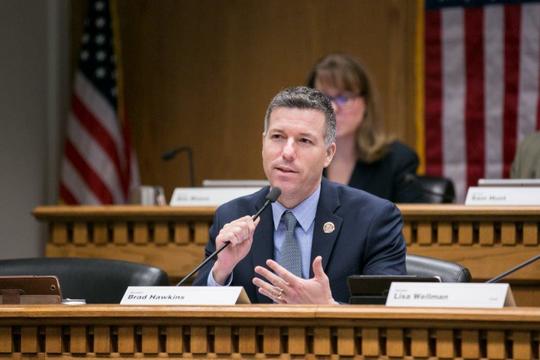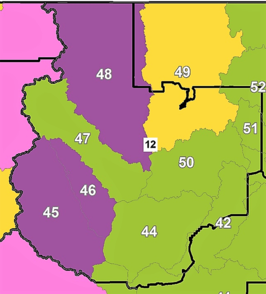|
January 23, 2018
Dear Friends and
Neighbors,
Late last week the Senate and House of
Representatives finally reached agreement on a new policy aimed at resolving
the rural water situation caused by the Hirst
court ruling. The votes to
pass Senate Bill 6091 took place almost a year since I chaired the first Senate
committee hearing on Hirst-related bills.
Issued
in October 2016, the Hirst decision involved
two important priorities: Ensuring adequate water for instream flows (necessary
for fish) and for domestic use. It affected
the permit-exempt wells that draw less than 5,000 gallons of water daily for domestic purposes – wells that are often critical for residential
development in rural areas. The state
Supreme Court’s ruling greatly complicated the process for getting local
permission to drill an exempt well in support of a building permit application.
I’m very proud that none of us,
Republicans or Democrats, gave up on trying to find a thoughtful compromise to
the Hirst issue. While the new law
doesn’t reflect what everyone wanted, it represents a positive step forward and
provides both a level of clarity and certainty that we haven’t had since the
ruling came down.
My
goal going into this process was for the final outcome to be either positive or
not harmful to our North Central Washington watersheds. I supported the Hirst legislation because I believe this
goal was accomplished.

The
policy changes took effect as soon as the governor signed the bill Friday, so
the next step for rural landowners is to contact their local land use officials
for details about how to proceed. Here is a short overview related to our
legislative district.
Summary
of SB 6091
The new policy will
have different effects in different parts of the state because it relies
on water resource inventory areas (WRIAs) to categorize how decisions about
water wells will be made. There are 62 WRIAs statewide; seven of them
cover most of the land in the 12th District.
 Effect
on 12th District WRIAs
-
In a WRIA without an instream flow rule, which
is not listed in the bill, a water well report is sufficient evidence of
adequate water supply. This applies to WRIA 44 (Moses Coulee), WRIA 47 (Chelan Watershed) and WRIA
50 (Foster Creek Watershed).
- In a WRIA with an instream flow rule that
explicitly regulates exempt wells, the terms of the rule must be followed in
determining whether an applicant can show evidence of adequate water supply.
This applies to WRIA 45
(Wenatchee River Basin), WRIA 46 (Entiat River Basin), and WRIA 48 (Methow
Watershed).
- In a WRIA with an instream flow rule that does
not explicitly regulate exempt wells and where a watershed plan was completed,
wells are authorized if the applicant pays a $500 fee. Water use for
domestic purposes is set at a maximum annual average of 3,000 gallons per day.
This applies to WRIA 49
(Okanogan River Basin), of which a portion is located in District 12.
Here are links to Hirst-related
information and news coverage:
Thank you again for the opportunity to serve as your 12th
District state senator.
|

Brad Hawkins
State Senator
Brad Hawkins
12th Legislative District
E-mail:
brad.hawkins@leg.wa.gov
Website: senatorbradhawkins.org
107 Newhouse Building
- P.O. Box 40412 | Olympia, WA 98504-0412
(360) 786-7622 or Toll-free: (800) 562-6000
|